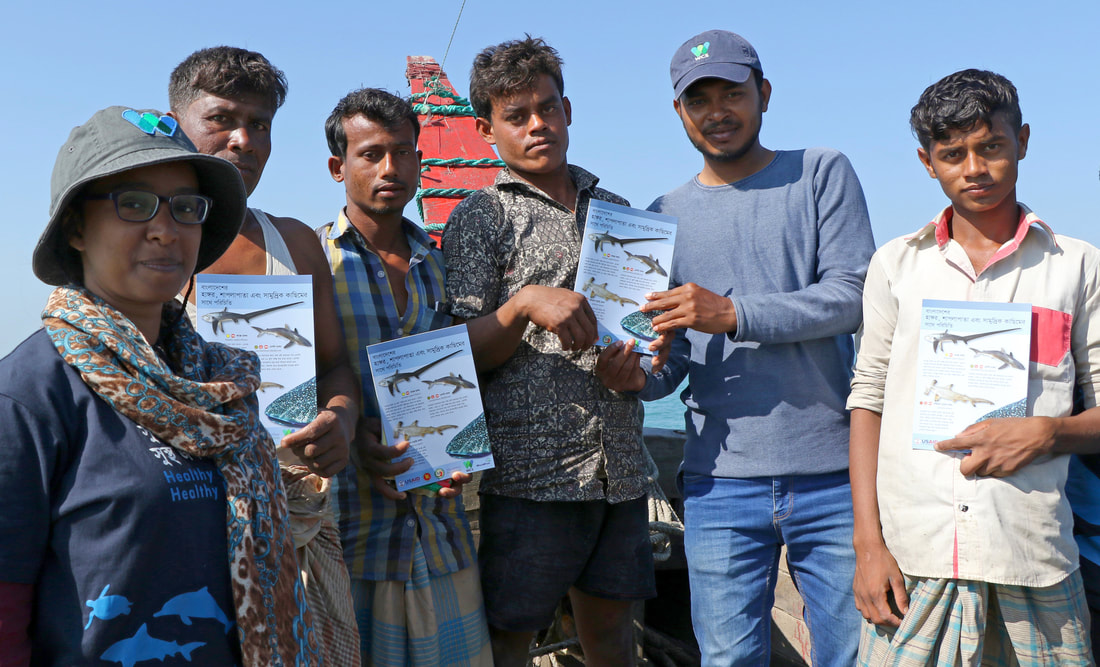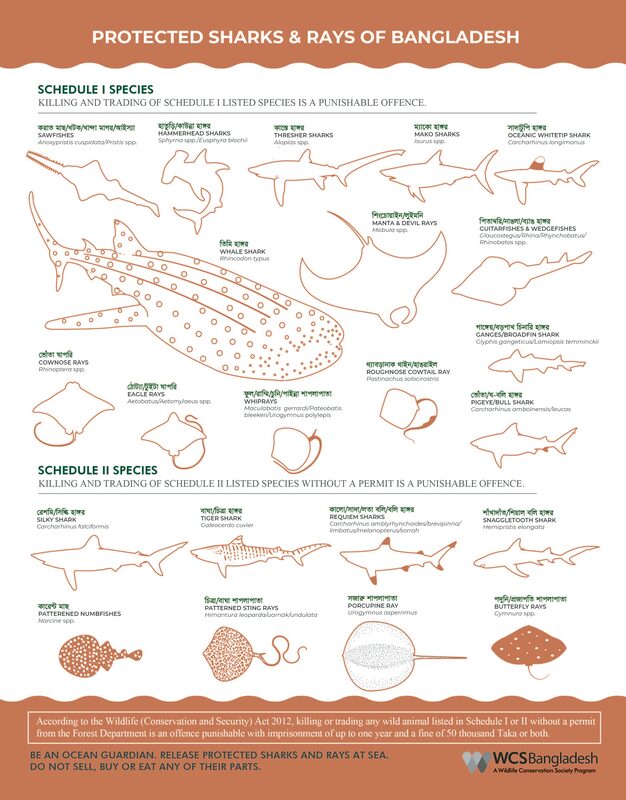“This updated list prepared by the Forest Department in consultation with the Department of Fisheries and national and international experts, and with technical support from the Wildlife Conservation Society (WCS), incorporates new information on sharks and rays in Bangladesh and builds on the country’s international, regional and constitutional commitment to protect threatened marine wildlife and their habitats,” says Conservator of Forests Mollah Rezaul Karim of the Wildlife and Nature Conservation Circle. Chief Conservator of Forests Mr. Md. Amir Hosain Chowdhury explains that “More than half of the 116 shark and ray species confirmed or suspected to occur in Bangladesh are threatened with extinction. This amendment empowers the Forest Department and other law enforcement agencies to be proactive in protecting some of the worlds most threatened marine wildlife while at the same time it provides a framework for the sustainable exploitation of non-threatened species for the benefit of local fishing communities.” According to official Government statistics, up to two thousand tonnes of dried shark fins are exported from Bangladesh each year, earning over a million US dollars in tax revenue. G M Masum Billah, who coordinates a network of trained citizen scientists for WCS Bangladesh, says that: “Between 2016 and 2019, our citizen science network recorded more than two million sharks and nearly two hundred thousand rays at eight fish landing sites in coastal Bangladesh. Among these sharks and rays, we identified eight critically endangered species.” Mr. A.S.M Jahir Uddin Akon, Director of the Wildlife Crime Control Unit of the Forest Department, explains, “The Convention on International Trade in Endangered Species of Wild Fauna and Flora (CITES) regulates the international trade of sharks and rays. The convention prohibits trade in three species of sawfish that still occur in Bangladesh. The convention also requires an official permit from the Forest Department to export 25 other shark and ray species that occur in Bangladesh. These permits can only be issued if there is strong evidence that their trade will not harm wild populations.” Sharks and rays help maintain an ecological balance and they contribute to a healthy ocean supporting healthy people. Sharks and rays grow and reproduce slowly, meaning that they are vulnerable to overfishing. “This improved legislation is a critical step towards reducing the extinction risk of sharks and rays in the Bay of Bengal,” says Dr. Md. Sharif Uddin, Director (Marine) of the Department of Fisheries. “Enforcement of these regulations must go hand in hand with promoting the live release of protected species and improving our understanding of the ecological benefits of sustainable fisheries. If fishers, traders, and consumers understand that by protecting threatened sharks and rays, they are also safeguarding their livelihoods and food security, Bangladesh can turn the tide from the overexploitation to sustainable conservation management.” Support from the Shark Conservation Fund and the Pew Charitable Trusts Global Shark Conservation Project enabled WCS to assist the Government of Bangladesh with the formulation of the amendment. Comments are closed.
|
Archives
May 2024
Categories
All
|





